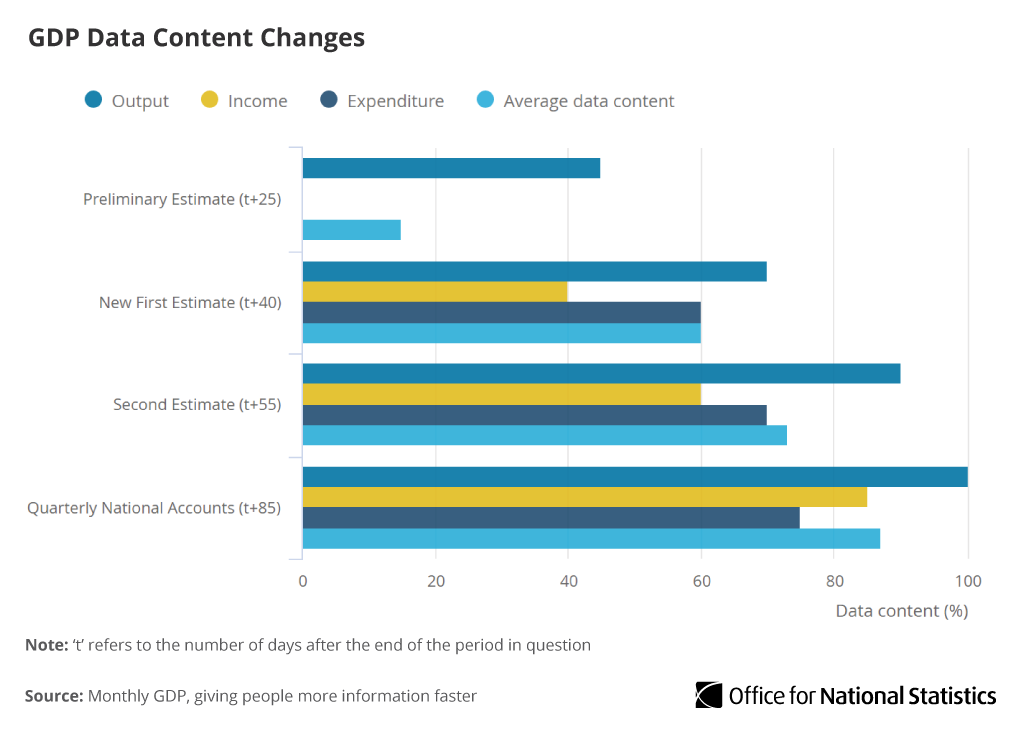Monthly GDP: More information, faster

Next week, ONS is making an important improvement to the way it publishes GDP figures. James Scruton explains why this change is taking place and how it will give policy makers access to more data, more quickly.
On 10 July we will publish our first monthly estimate of Gross Domestic Product, or GDP. GDP estimates the size of and growth in the economy. This is part of our wider strategy of improving how we record and publish economic statistics.
Up until now, we have produced the figures for each calendar quarter, with the first estimate published just 25 days after the end of the period. However, under our previous model, the first estimate was produced using only data on what the economy produced (with no data on what was spent or earned) and contained less than half that data that will be available to us in later estimates, with much of the information for the third month in the quarter based on forecasts.
Under our new model, we will produce rolling monthly and three-monthly estimates of how much the economy is producing, with a significantly higher data content. These will be published at the beginning of every month, giving policymakers quick access to important information about how the UK economy is growing and changing.

Graph showing data content for each release under the previous and new model
While the new model means the first calendar quarter estimates will be published slightly later than they currently are, we’re still providing more economic data sooner. On 10 July we will be publishing GDP data for the three months to May, when previously we only published a headline GDP figure for the three months to March at this point in the cycle.
The new model also means we will be able to produce a more detailed first full calendar quarter estimate of how the economy is performing – with the inclusion of information on household expenditure and business investment, more than two weeks quicker each quarter than we do now.
While this might seem like a small change, monthly GDP will mean higher quality and quicker estimates of our changing economy, ensuring policymakers have the important information they need to take vital decisions.
James Scruton is Head of GDP data for the ONS
